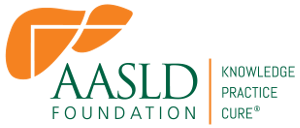Clinical, Translational and Outcomes Research Award (CTORA)
View the 2025 Request for Applications [PDF].
Overview
The purpose of these awards is to foster career development for individuals performing clinical research, translational research, or outcomes research in a liver-related area and who have shown commitment to excellence at an early stage of their research study. The award is intended to ensure that a significant portion of young investigators’ time is protected for research, with an overall objective of enabling young investigators to develop independent and productive research careers in liver disease.
- Applications in health disparities-related research are encouraged.
- One award per year will be prioritized for meritorious transplant-related research in memory of the University of Michigan Transplant Team.
Notice of Special Interest
Additional dedicated funding to advance research activities in autoimmune hepatitis is available for the 2025 Awards cycle. Applications in autoimmune hepatitis are encouraged in all early to mid-career research award categories and the Pilot and Autoimmune Exploratory Research Award categories.
-
Eligibility
-
Award Details
-
Selection Criteria
-
How to Apply
-
Application Resources
-
CMS Open Payments Disclaimer
Eligibility
In order to be eligible for this award, the applicant must adhere to the following guidelines:
- The applicant must:
- Be within the first five years of their first faculty appointment (including prior appointments in universities outside of North America) at the start of the award (faculty appointment starting no earlier than July 1, 2020).
- If the applicant does not have a faculty appointment at the time of application, the letter of commitment from their department chair must explicitly confirm that the applicant will have a faculty appointment (i) no later than the Award start date and (ii) for the full award cycle.
- Be a member of the American Association for the Study of Liver Diseases (AASLD) at the time of award application and maintain active membership for the duration of the award period
- Be able to devote at least 50% effort to the research project on which this application is based.
- Be sponsored by a public or private non-profit institution accredited in the United States, Canada or Mexico engaged in health care and health-related research. Individuals employed at the NIH, FDA, and CDC are not eligible to apply.
- Have a research mentor or co-mentor who is an AASLD member in good standing at the time of application and for the duration of the award period.
- Not hold/have held any other similar award that is intended to primarily support the salary of early career investigators (including but not limited to NIH R, P or most K level grants, or similar career development awards from federal or non-federal sources. See eligibility list for more common programs).
- Be within the first five years of their first faculty appointment (including prior appointments in universities outside of North America) at the start of the award (faculty appointment starting no earlier than July 1, 2020).
- The proposed project must:
- Be clinical (direct contact with patients, clinical trials), translational (investigation using patient samples), or outcomes-based (epidemiological studies, patient-centered outcomes, or health services) research.
- Be conducted at the sponsoring institution within the United States, Canada or Mexico.
- Application limits:
- A single sponsoring institution may submit up to two applications per distinct department within each institutional training site, but only one applicant may be funded per department within each institution for this award category.
- Applicants may only apply for one AASLD Foundation award per calendar year.
Award Details
Award Period: July 1, 2024 – June 30, 2026.
Total Award Amount: $200,000
- Award funds of $200,000 will be provided in quarterly installments of $25,000 over two (2) years ($100,000 per year).
- Annual continuation of funding is contingent on the receipt and approval of annual progress and financial reports and continued adherence to Award eligibility and effort requirements. Continuation of annual funding is not contingent on specific research outcomes/results.
- Funds may only be used for PI salary support, technical support, laboratory supplies (excluding capital equipment), and limited travel support for the recipient.
- PI salary support or salary for technical support may include fringe.
- Capital equipment is defined as items that cost $5,000 or greater, have a useful life of more than one year, and will not be expended or consumed in research.
- PIs will receive complimentary registration for The Liver Meeting for the duration of their two-year grant term. Up to $2,000 of Award funding may be used for travel support only in the second/final year of the grant term to offset the PI’s costs to attend The Liver Meeting and present an in-person progress update on their funded project to AASLD Foundation leadership.
- No additional or indirect costs, registration fees, or travel expenses other than described above are allowed.
The AASLD Foundation does not require, nor does it approve, a detailed project budget for this award category. Budget proposals submitted by PIs to their institution’s sponsored projects office that allocate Award funds to unallowable costs should not be considered approved by AASLD Foundation. The sponsoring institution is responsible for ensuring that Award funds are only used for allowable costs.
How Award funds are allocated to allowable costs is at the discretion of the sponsoring institution. For example, while this award requires a minimum of 50% effort toward the funded research project, it is not required that PI salary must be directly supported by Foundation Award funds. It is expected that additional institutional funds will be available to the investigator in order to carry out the proposed research.
Unexpended funds at the end of the Award term must be promptly returned to AASLD Foundation.
Selection Criteria
AASLD Foundation is soliciting clinical, translational, and outcomes grant proposals focused on all aspects of liver diseases.
Applicants will be evaluated based upon their background, their commitment to a career in hepatology research, the scientific merit of theirresearch project and the environment in which they will conduct the project.
Applications will be reviewed based on the written materials submitted. Incomplete applications and applications that fail to adhere strictly to the instructions (including the submission deadline and page limitations) will not be reviewed. All decisions are final.
How to Apply
The application deadline for this award is 11:59 pm Eastern time on December 9, 2024. Applications received after the deadline will not be reviewed.
- Download the 2025 RFA and prepare all components listed in the required documents section.
- The forms on pages 6-10 of the RFA must be completed and included as part of your application.
- Type responses where prompted and provide all requested signatures.
- Prepare your final application as a flattened, single PDF (no portfolios). PDFs cannot be locked or have any password protection. Applications that do not meet the requirements, in content or format, will not be reviewed.
- Assemble your application in the order listed in the required documents section of the program RFA.
- Name the PDF file as follows: 2025 CTORA _Last name, first name (Example: 2025 CTORA_Smith, Jane)
- Formatting:
- Include a header at the upper right corner of each page with your name (last name, first name), application year, and program name (2025 CTORA).
- Use half-inch margins. Do not use lettering smaller than 10 point.
- Adhere to page limits and complete all sections.
- Submit your application at www.liverresearchawards.org. You will be sent an email confirmation that the application was received. If an email confirmation is not received in two (2) business days, please contact awards@aasld.org to confirm receipt.
Application Resources
CMS Open Payments Disclaimer
This funding program may receive support that could require reporting by a corporate supporter under the Physician Payments Sunshine Act (PPSA). Reported information may appear on the CMS (Centers for Medicare & Medicaid Services) Open Payments Website and include such information as the grant amount, awardee name, NPI, and sponsoring institution name. To learn more about the PPSA and how to review reported information please visit the Open Payments Resources for Physicians and Teaching Hospitals.
QUESTIONS
Questions? Contact awards@aasld.org.
Return to Current Funding Opportunities
ACKNOWLEDGEMENTS
The 2025 Clinical, Translational, and Outcomes Research Award in Liver Diseases program is made possible through independent grants and unrestricted donations from AASLD and donors to the AASLD Foundation.

